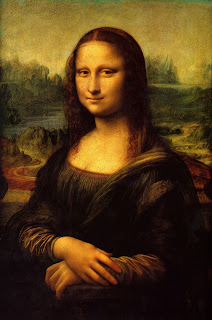I found two parts of the George Kubler reading particularly interesting. The first was when Kubler discusses the history of and limitations of artist biographies. One such limitation is how these biographies "confine the value of the history of art" in a way that makes it "easy to overlook the continuous nature of artistic traditions" (4). According to Kubler, these biographies are"confined" in this way because the biographer's goals are solely focused on the particular artist's life and his or her works. I had not previously thought about biographies in this light before. I found Kubler's metaphor comparing using the life of an individual artist as way to study the history of art to that of accurately describing the railroads of a certain country helpful. It makes sense that focusing on a single artist's life as a way to explain art history is too narrow just as would be studying one railroad traveler.
Another section of the reading that I found particularly interesting was the section discussing the terms "talent" and "genius". In my own life, I have noticed how people immediately associate famous artists as being geniuses who have almost superhuman amounts of talent. Kubler argues that this is not the case, but that an artist's "entrance and position in sequence" are as influential as his or her talent (6). Kubler cites a few artists to support this idea. One is Leonardo da Vinci and another is Bernardino Luini. The fact that Kubler does not need to even mention da Vinci's last name for the reader to recognize who he is referencing supports his argument. Kubler explained that Luini was talented just like da Vinci, but "came late when the feast was over" (6). If I were to show the two photos pictured below, people who know very little about art would probably recognize the piece on the left as opposed to the other piece.
Kubler describes modern views of the idea of genius as being a "congenital disposition" instead of "a fortuitous keying together of disposition and situation into an exceptionally efficient entity" (6). When I read that, I thought about Hollywood and how there are so many actors and actresses that are just as talented as the A list celebrities, but have not had the same luck. Kubler's points about an artist's biography and how famous artists did not solely possess talent stood out to me and made me think about how I had been previously viewing these two ideas in my own life.


No comments:
Post a Comment